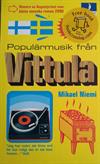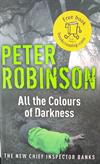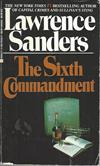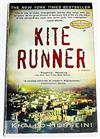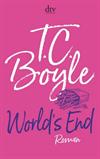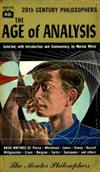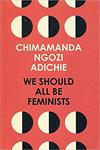
The Long Exile : A True Story of Deception and Survival Amongst the Inuit of the Canadian Arctic
Registered by aleonblue of Brisbane, Queensland Australia on 8/25/2012
 This Book is Currently in the Wild!
This Book is Currently in the Wild!
 This Book is Currently in the Wild!
This Book is Currently in the Wild!
3 journalers for this copy...
I found this a moving and heartbreaking read - well worth it though.
Reviewfrom Edward Marriott -
The Observer, Sunday 17 September 2006
"On 5 April 1993, a small group of Inuit gathered in Ottawa to give evidence to the Royal Commission on Aboriginal Peoples. Over the next few days, what they were to reveal - publicly, for the first time - shocked Canada, which had hitherto fondly believed that it was a nation that, unlike its southern neighbour, generally treated its native peoples with decency and respect.
The Inuit who gave evidence were the survivors of an experiment dating back to the Fifties, under which a number of families from the east coast of Hudson Bay were experimentally resettled in the uninhabited polar Arctic. The reasons were, in large part, political: the presence of Inuit on Ellesmere Island would, Canada believed, discourage Greenland, Denmark or the United States from staking a claim to the island. It was also, though, intended to relieve pressure on the Hudson Bay Inuit population.
Here, families who had been encouraged to give up their traditional hunting for trapping fox had become dependent on the price of fox pelts, which was in freefall. If a significant group of Inuit were moved north, then, the government believed, they could rediscover themselves as hunters and pressure on the 'problem areas' would also be relieved.
The problem was that the Inuit didn't want to go. Ross Gibson, the young and inexperienced Irish-Canadian policeman whose task it was to persuade them, found the PR job extremely taxing and no wonder. For four months of the year, Ellesmere Island is dark 24 hours a day. Even in summer, temperatures rarely rise much above freezing, and in winter, they regularly fall below - 40C, the temperature at which a cup of boiling water turns to water vapour when thrown into the air, saliva freezes and steam rises from the fingers. Gibson, undaunted, told the Inuit of the plethora of game to be trapped and promised them they could always return if they didn't like life on Ellesmere.
Eventually, seven families reluctantly agreed to make the 1,500-mile journey in July 1953, followed by a further, smaller group two years later. Among them was Josephie Flaherty, a mixed-race Inuit whose father, Robert J Flaherty, had spent 1922 making a film about the Canadian Arctic and had had a brief affair with one of the Inuit women. The film, Nanook of the North, starred a mythical Eskimo hunter who lived in an igloo with his family in the peaceful Arctic wilderness, and was a huge global hit. Confectionery manufacturers turned out ice-creams with the face of the 'star', Allakariallak, on the wrappers; pop songs were written; thousands of miles away, in Malaysia, Nanook entered the language. Even today, 'nanuk' means 'strong man' in Malay.
The reality of life in Canada's far north, however, was very different from Flaherty's depiction. And on Ellesmere Island, on which, despite Gibson's sales talk, no wildlife surveys had ever been conducted, it was close to hell for the Inuit. Arriving, writes McGrath, 'ice mist glittered from the crags and drifted into the air and it would have been easy for anyone of a superstitious nature to suspect the island of being some kind of rocky anteroom to eternity'. Life here moves at an almost glacial speed: Arctic poppies growing on Ellesmere take 20 years to reach adult size.
Bewildered, homesick and near-starving, the Inuit pleaded repeatedly to be allowed to return to Hudson Bay, but were refused time after time. Partly, McGrath writes in her poignant and humane book, this was probably because the Inuit are not a pushy people, valuing calmness and stoicism. 'The most important words in his vocabulary are "immaga" - "perhaps" - and "ayunqnaq" - "it can't be helped".'
McGrath, who tracked down some of the survivors as well as travelling in the territory, tells an impressively researched and often poetic story, even if sometimes she lets her narrative get bogged down by too much detail. In the end, thankfully, her wretched tale can offer something of a happy ending.
Such was the national outrage at the findings of the 1993 commission that, before the decade was out, the territory of Nunavut was created. Nunavut, the only self-governing state in the world established for the benefit of indigenous people, is eight times the size of the UK and has a population of just 30,000. A heritage fund of C$10m was also set up to provide housing, travel, pensions and compensation for the families who were relocated to the High Arctic in the Fifties and their descendants. To date, though, the Canadian government has made no apology to the Inuit for what happened to them. Reading McGrath's book, it is hard to imagine why not.
"
Reviewfrom Edward Marriott -
The Observer, Sunday 17 September 2006
"On 5 April 1993, a small group of Inuit gathered in Ottawa to give evidence to the Royal Commission on Aboriginal Peoples. Over the next few days, what they were to reveal - publicly, for the first time - shocked Canada, which had hitherto fondly believed that it was a nation that, unlike its southern neighbour, generally treated its native peoples with decency and respect.
The Inuit who gave evidence were the survivors of an experiment dating back to the Fifties, under which a number of families from the east coast of Hudson Bay were experimentally resettled in the uninhabited polar Arctic. The reasons were, in large part, political: the presence of Inuit on Ellesmere Island would, Canada believed, discourage Greenland, Denmark or the United States from staking a claim to the island. It was also, though, intended to relieve pressure on the Hudson Bay Inuit population.
Here, families who had been encouraged to give up their traditional hunting for trapping fox had become dependent on the price of fox pelts, which was in freefall. If a significant group of Inuit were moved north, then, the government believed, they could rediscover themselves as hunters and pressure on the 'problem areas' would also be relieved.
The problem was that the Inuit didn't want to go. Ross Gibson, the young and inexperienced Irish-Canadian policeman whose task it was to persuade them, found the PR job extremely taxing and no wonder. For four months of the year, Ellesmere Island is dark 24 hours a day. Even in summer, temperatures rarely rise much above freezing, and in winter, they regularly fall below - 40C, the temperature at which a cup of boiling water turns to water vapour when thrown into the air, saliva freezes and steam rises from the fingers. Gibson, undaunted, told the Inuit of the plethora of game to be trapped and promised them they could always return if they didn't like life on Ellesmere.
Eventually, seven families reluctantly agreed to make the 1,500-mile journey in July 1953, followed by a further, smaller group two years later. Among them was Josephie Flaherty, a mixed-race Inuit whose father, Robert J Flaherty, had spent 1922 making a film about the Canadian Arctic and had had a brief affair with one of the Inuit women. The film, Nanook of the North, starred a mythical Eskimo hunter who lived in an igloo with his family in the peaceful Arctic wilderness, and was a huge global hit. Confectionery manufacturers turned out ice-creams with the face of the 'star', Allakariallak, on the wrappers; pop songs were written; thousands of miles away, in Malaysia, Nanook entered the language. Even today, 'nanuk' means 'strong man' in Malay.
The reality of life in Canada's far north, however, was very different from Flaherty's depiction. And on Ellesmere Island, on which, despite Gibson's sales talk, no wildlife surveys had ever been conducted, it was close to hell for the Inuit. Arriving, writes McGrath, 'ice mist glittered from the crags and drifted into the air and it would have been easy for anyone of a superstitious nature to suspect the island of being some kind of rocky anteroom to eternity'. Life here moves at an almost glacial speed: Arctic poppies growing on Ellesmere take 20 years to reach adult size.
Bewildered, homesick and near-starving, the Inuit pleaded repeatedly to be allowed to return to Hudson Bay, but were refused time after time. Partly, McGrath writes in her poignant and humane book, this was probably because the Inuit are not a pushy people, valuing calmness and stoicism. 'The most important words in his vocabulary are "immaga" - "perhaps" - and "ayunqnaq" - "it can't be helped".'
McGrath, who tracked down some of the survivors as well as travelling in the territory, tells an impressively researched and often poetic story, even if sometimes she lets her narrative get bogged down by too much detail. In the end, thankfully, her wretched tale can offer something of a happy ending.
Such was the national outrage at the findings of the 1993 commission that, before the decade was out, the territory of Nunavut was created. Nunavut, the only self-governing state in the world established for the benefit of indigenous people, is eight times the size of the UK and has a population of just 30,000. A heritage fund of C$10m was also set up to provide housing, travel, pensions and compensation for the families who were relocated to the High Arctic in the Fifties and their descendants. To date, though, the Canadian government has made no apology to the Inuit for what happened to them. Reading McGrath's book, it is hard to imagine why not.
"
Picked up at meetup :)
Journal Entry 3 by aleonblue at Coffee Club - Nundah Village Shopping Centre in Nundah, Queensland Australia on Wednesday, January 28, 2015
Released 9 yrs ago (1/26/2015 UTC) at Coffee Club - Nundah Village Shopping Centre in Nundah, Queensland Australia
WILD RELEASE NOTES:
Releasing this at the 1st Brisbane BOokCrossers meet-up for 2105 - enjoy!
Picked up at the Brisbane Bookcrossing meetup
Journal Entry 5 by bookworm76 at -- Nonspecific release zone - details in notes -- in Brisbane, Queensland Australia on Sunday, February 11, 2024
Released 2 mos ago (2/11/2024 UTC) at -- Nonspecific release zone - details in notes -- in Brisbane, Queensland Australia
WILD RELEASE NOTES:
I am taking this along to the next Brisbane Bookcrossing catchup. If not picked up I will leave it somewhere.
